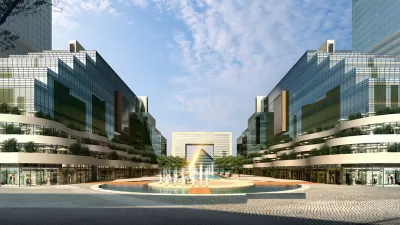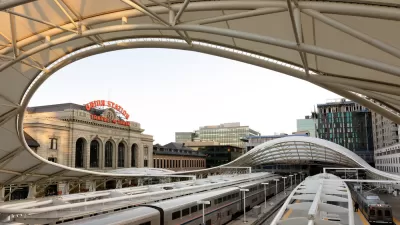Pushing back on a version of futurism that imagines cities as a collection of iconic structures devoid of people and interactions.

"The current trajectory of urbanization and city-building is not going to get us where we need to go," writes Ethan Kent. "In fact, if you google 'The Future of Cities,' the images that come up reflect a dominant vision, and a caricatured extrapolation of what is currently being built in the 'most developed' human settlements."
Those caricatures are the impetus for the Future of Places program, led by UN-Habitat and the Project for Public Spaces. The program, as described by the post, wants to shift the thinking about the future of cities away from objects and toward places.
The remainder of the article provides resources and recommendations for how such effects can be achieved, calling especially on past research and products from the Project for Public Spaces.
FULL STORY: A THRIVING FUTURE OF PLACES: PLACEMAKING AS THE NEW URBAN AGENDA

Maui's Vacation Rental Debate Turns Ugly
Verbal attacks, misinformation campaigns and fistfights plague a high-stakes debate to convert thousands of vacation rentals into long-term housing.

Planetizen Federal Action Tracker
A weekly monitor of how Trump’s orders and actions are impacting planners and planning in America.

Chicago’s Ghost Rails
Just beneath the surface of the modern city lie the remnants of its expansive early 20th-century streetcar system.

Bend, Oregon Zoning Reforms Prioritize Small-Scale Housing
The city altered its zoning code to allow multi-family housing and eliminated parking mandates citywide.

Amtrak Cutting Jobs, Funding to High-Speed Rail
The agency plans to cut 10 percent of its workforce and has confirmed it will not fund new high-speed rail projects.

LA Denies Basic Services to Unhoused Residents
The city has repeatedly failed to respond to requests for trash pickup at encampment sites, and eliminated a program that provided mobile showers and toilets.
Urban Design for Planners 1: Software Tools
This six-course series explores essential urban design concepts using open source software and equips planners with the tools they need to participate fully in the urban design process.
Planning for Universal Design
Learn the tools for implementing Universal Design in planning regulations.
planning NEXT
Appalachian Highlands Housing Partners
Mpact (founded as Rail~Volution)
City of Camden Redevelopment Agency
City of Astoria
City of Portland
City of Laramie




























